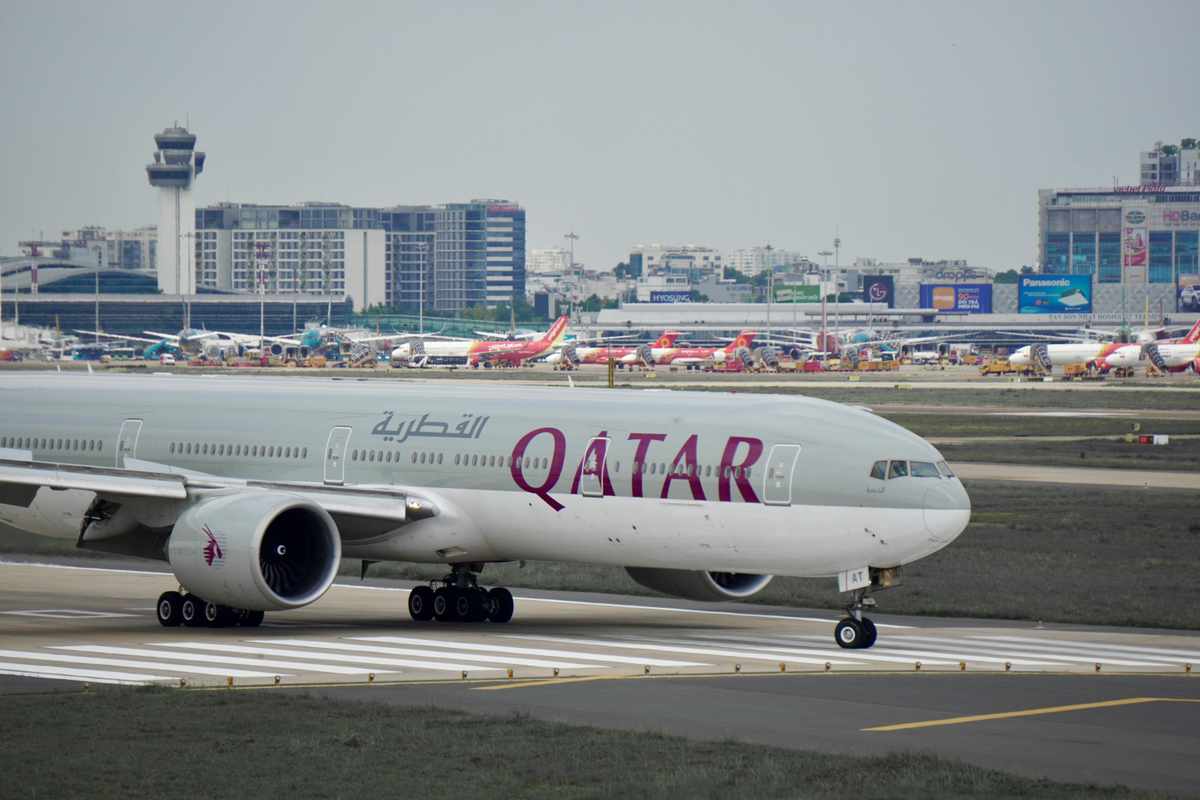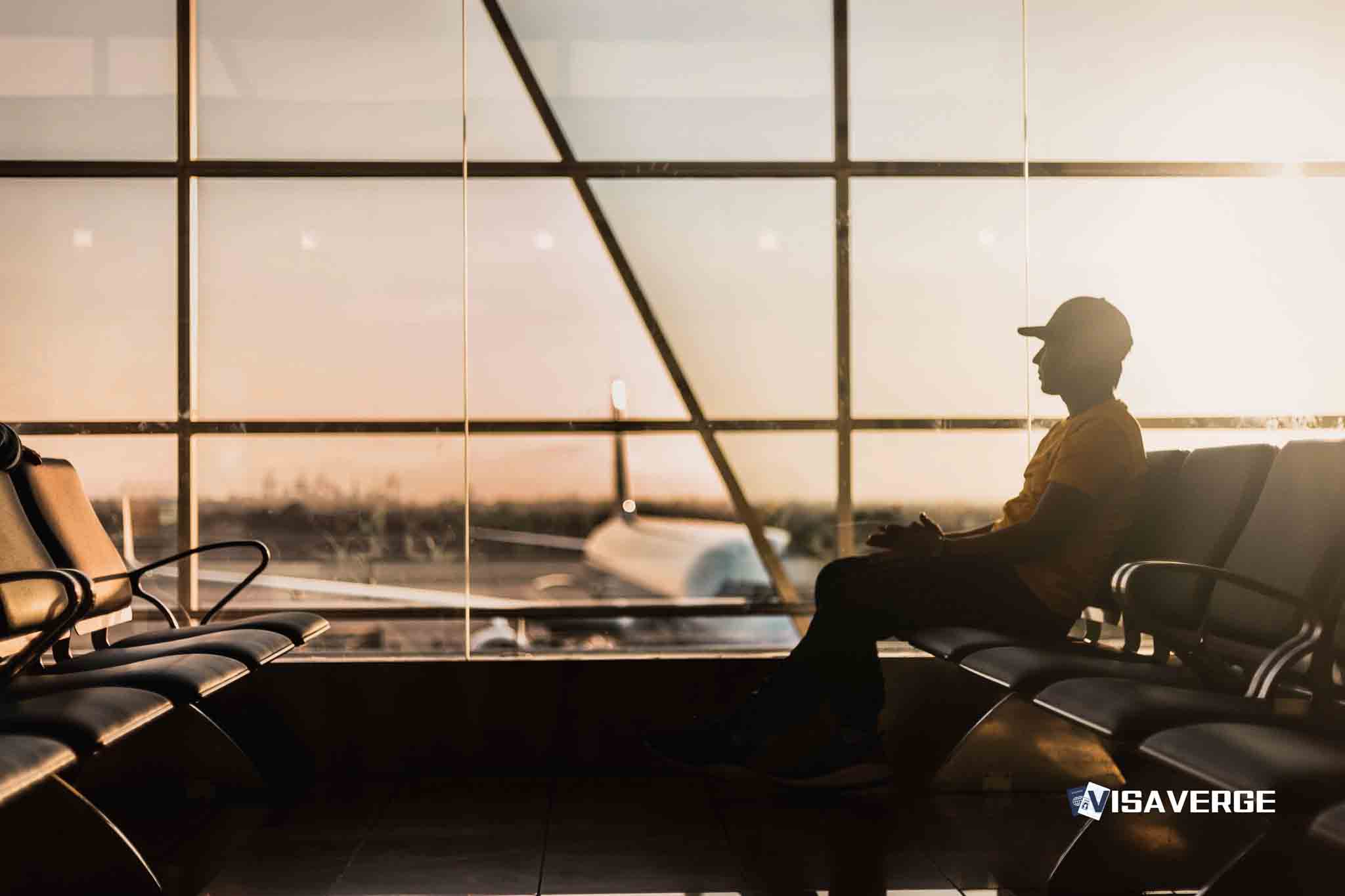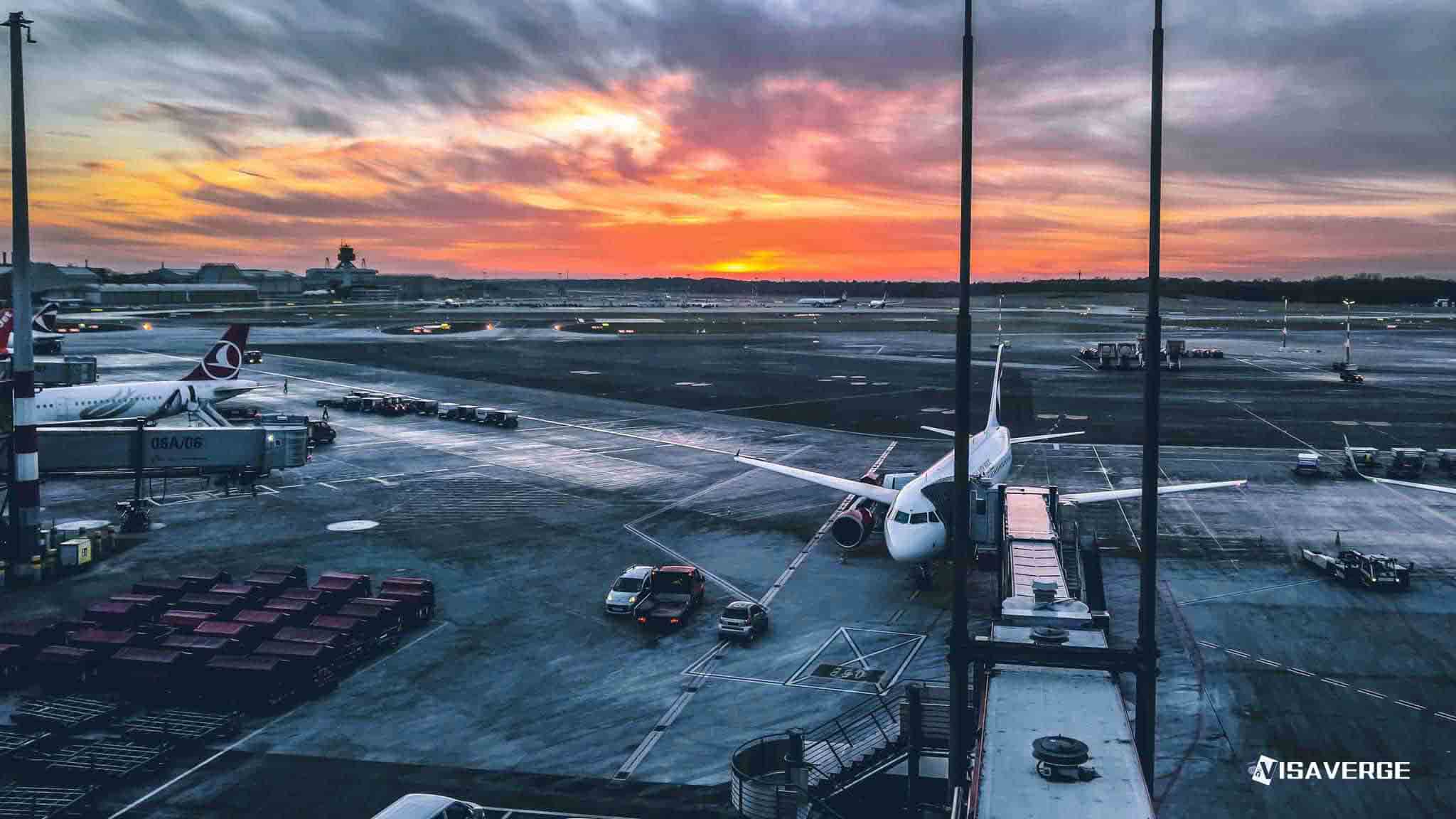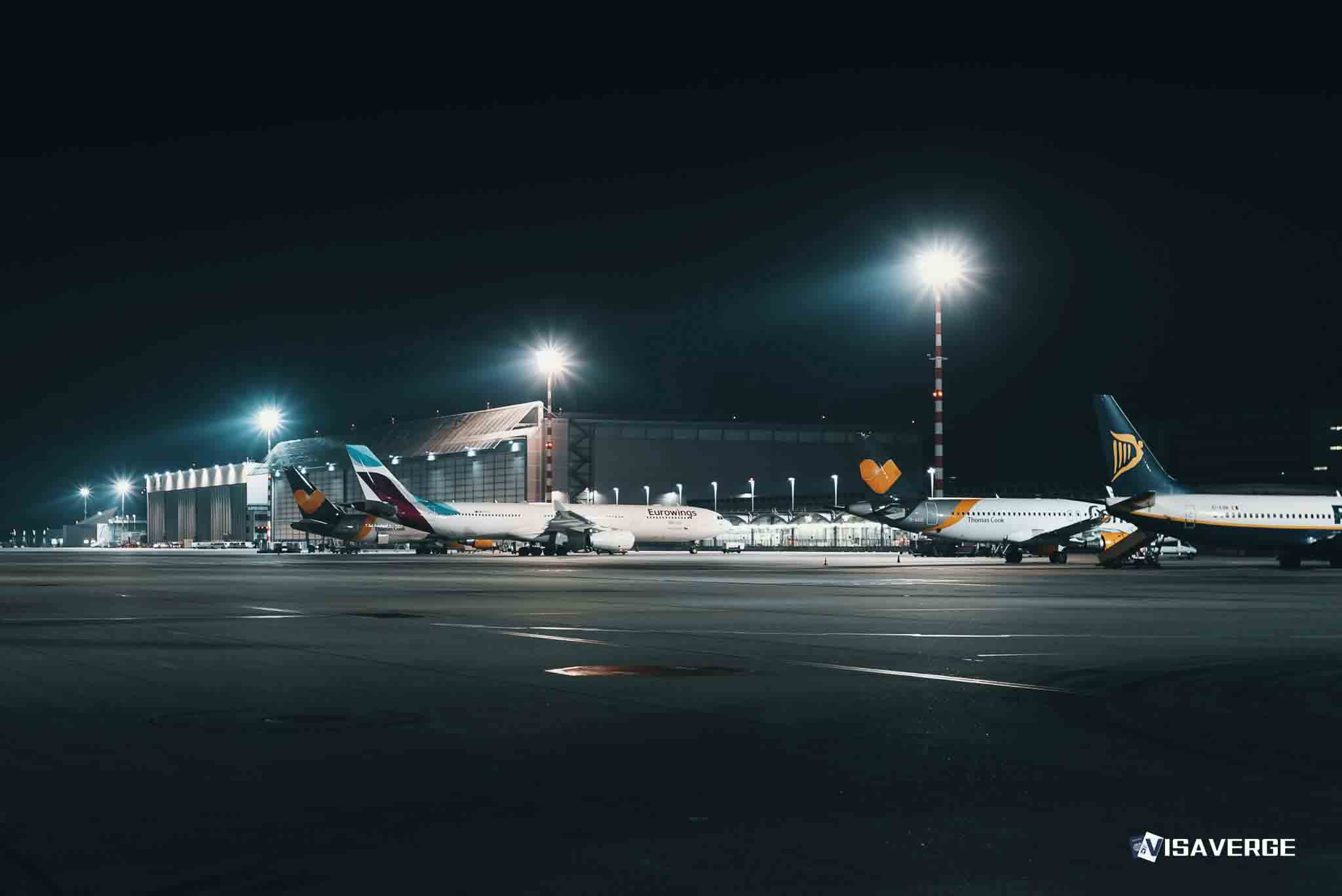(OUAGADOUGOU, BURKINA FASO) Burkina Faso has rejected a U.S. proposal to receive people deported from the United States 🇺🇸 and, on the same day, saw the U.S. Embassy in Ouagadougou halt most visa services for Burkinabe citizens. The twin developments, announced October 10, 2025, highlight a growing diplomatic rift and leave students, families, and businesses scrambling to figure out how to keep travel plans on track.
Foreign Affairs Minister Karamoko Jean-Marie Traore called the U.S. proposal “indecent” and “completely contrary to the principle of dignity,” signaling the junta government’s hard line and its wider pivot away from Western partners.
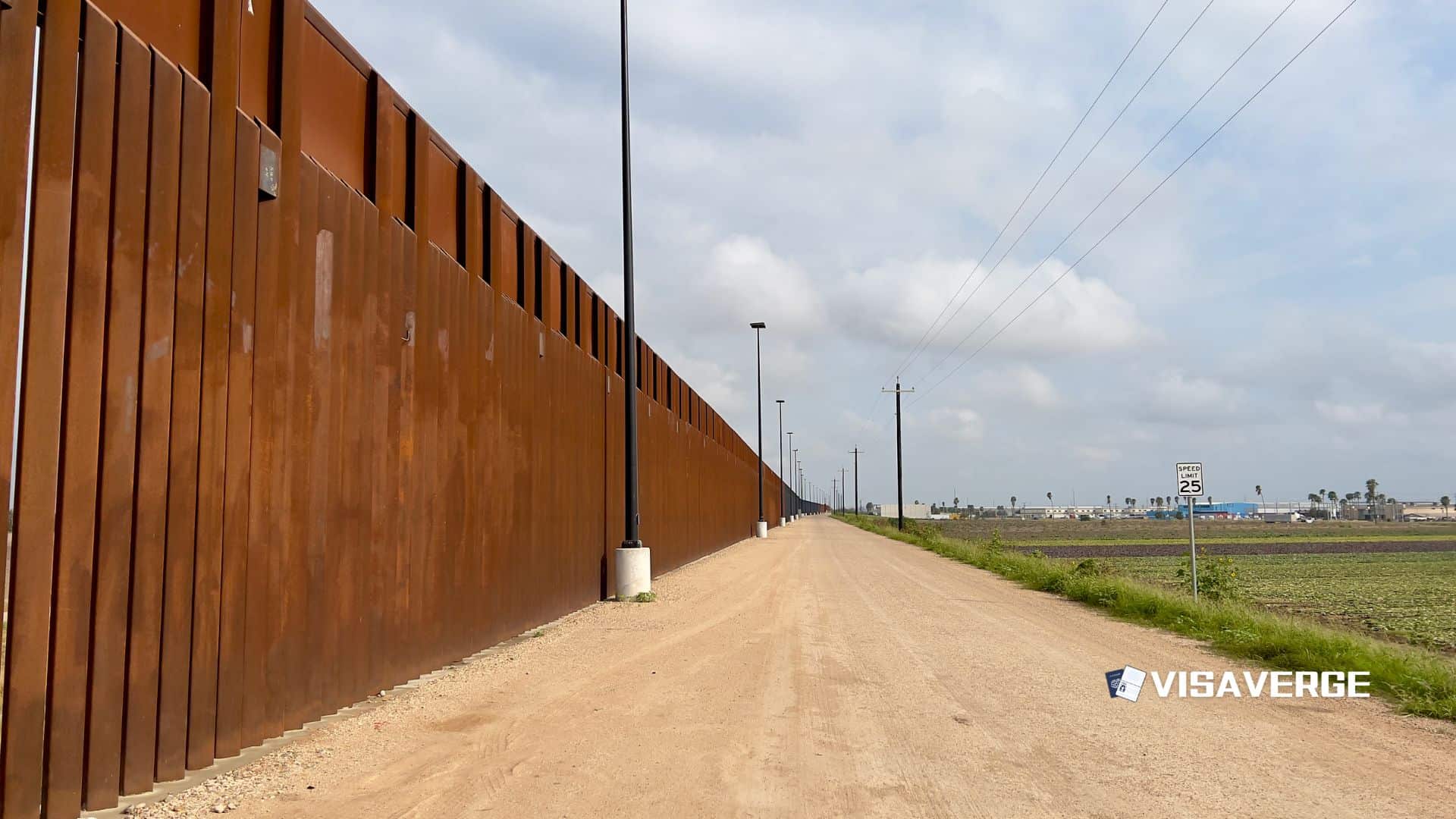
What the Embassy Suspension Means
Under the suspension, the embassy stopped routine processing for both immigrant and nonimmigrant categories—including tourism, business, student, and exchange visas. Only diplomatic and official categories continue (A-1, A-2, G-1, G-2, G-4, C-2, C-3).
- Applicants with scheduled interviews have been told that appointments are canceled.
- New bookings cannot be made until the embassy restarts normal operations.
- The State Department says the pause is linked to a global review of screening and vetting systems designed to meet U.S. security and public safety standards.
- Current, unexpired visas remain valid.
Authorities are directing Burkinabe applicants to seek interviews at the U.S. Embassy in Lomé, Togo. That redirection is already testing family budgets and logistics, especially for students with looming report dates and workers who must travel for training or conferences.
Important: Visa fees remain non-refundable but are valid for 365 days from payment, allowing people to reschedule when visa services resume in Ouagadougou.
Minister Traore asked whether the suspension was meant to pressure the government after it refused to accept deportees with no ties to Burkina Faso. “Is this a way to put pressure on us? Is this blackmail?” he said. Officials describe the refusal as a stand on sovereignty and dignity: “Burkina Faso is a place of dignity, a destination, not a place of expulsion.”
Policy Shift and Immediate Consular Impact
The deportation proposal traces back to a Trump-era approach that sought deals with third countries to receive people deported from the United States, even when those individuals had no prior link to the destination country. Some African nations—Eswatini, Ghana, Rwanda, and South Sudan—have taken in deportees in recent months, often alongside aid or improved travel arrangements.
Burkina Faso’s decision cuts against that trend and fits the junta’s broader foreign policy since the September 2022 coup. Under Captain Ibrahim Traore, the government has distanced itself from traditional Western allies and deepened ties with Russia and China.
From a consular standpoint, the pause is sweeping:
- Routine processing halted for B-1/B-2 visitors, F and M student visas, J exchange visas, H and L worker categories, and immigrant visa cases.
- Diplomatic and official travel continues, but that represents a narrow slice of demand.
- Families separated across continents are particularly hard hit—parents, students, businesspeople, and researchers face delays and extra costs.
- Many who had secured rare appointment slots now must travel to Lomé, incurring travel, accommodation, and safety concerns.
According to analysis by VisaVerge.com, the political standoff and the sudden stop in visa services create a high-friction environment for ordinary travelers. Students and workers are most affected because their travel is time-bound and tied to strict reporting dates. If they cannot adjust quickly, they risk losing program placements or job offers.
The State Department says visa application fees will continue to be honored for 365 days from payment, offering a narrow cushion. But there are no refunds. Emergency appointment requests at the local embassy may still be considered for urgent cases, such as life-threatening medical needs or funerals, but routine tourism or optional travel will not qualify.
Regional and Political Context
Burkina Faso’s rejection of the deportees proposal underscores its current foreign policy posture. The junta frames decisions through the lens of sovereignty and dignity, and aims to reduce Western influence.
- While the Trump-era push for third-country deportations remains controversial, the broader U.S. government has continued to tighten and recalibrate migration tools under changing political leadership.
- The visa pause in Ouagadougou is officially linked to a global security review, not to any single political figure.
- Still, the timing—occurring as the government rejected receiving deportees—raises questions on the ground. Local officials insist the two issues should not be coupled, while many residents see them as intertwined.
U.S. officials note the visa halt is temporary and part of a worldwide process to standardize screening and vetting. Applicants are advised to track updates through official channels and to prepare thorough application files if they move to Lomé.
Community stories illustrate the human impact:
- A graduate student with a hard start date in January may now need to secure a visa interview in Lomé within weeks and rebook flights.
- A family planning to attend a U.S. wedding must choose between canceling or incurring extra travel costs to Togo.
- A local firm sending technicians for U.S.-based training may miss its annual window, delaying equipment upgrades and contracts.
Each example shows the same pinch point: the shortage of local visa services and the sudden detour to a different country.
Practical Steps for Burkinabe Applicants
- Check your visa status first.
- If you already hold a valid U.S. visa, you can still travel. The suspension does not cancel current, unexpired visas.
- Use Lomé for new or pending cases.
- The U.S. Embassy in Ouagadougou is not offering routine interviews; applicants are being redirected to Togo.
- Expect longer waits and additional travel costs.
- Keep proof of fee payment.
- Visa fees are valid for 365 days from payment. There are no refunds, but you can reuse the same fee to rebook once Ouagadougou restarts processing.
- Mind category-specific forms.
- Nonimmigrant applicants complete the DS-160 online application. The official form is available at Form DS-160 (Online Nonimmigrant Visa Application).
- Immigrant visa applicants complete the DS-260 at Form DS-260 (Online Immigrant Visa Application).
- Follow official updates.
- The U.S. Department of State posts consular notices and guidance at travel.state.gov. Check the Ouagadougou page frequently and sign up for alerts if possible.
- Consider emergency requests only when truly urgent.
- Emergencies like life-threatening medical needs or funerals may qualify; routine travel will not.
- Prepare for interviews in Togo.
- Build extra time for travel, accommodation, and security.
- Keep documents organized: passport, application confirmation pages, fee receipts, photos, and supporting evidence (I-20 for F-1, DS-2019 for J-1, work petitions for H or L).
- Coordinate with U.S. schools and employers.
- Institutions can often defer start dates or issue updated documents.
- Students can ask the Designated School Official to reissue an I-20 with a new start date.
- Exchange visitors can seek revised DS-2019 forms; workers may request updated start dates.
For families in immigrant visa pipelines, the pause may extend timelines at the final stage. If the National Visa Center has qualified your case, be prepared for interview relocations to Lomé or future slots in Ouagadougou. Bring all civil documents, translations, and medical exam results, and confirm panel physician locations corresponding to your interview city.
Key takeaway: Stay flexible. The situation is fluid and may change with little notice. Those who can wait may prefer to hold off until Ouagadougou restarts routine services; others with strict deadlines may need to proceed in Lomé despite added costs.
Broader Implications
Burkina Faso’s stance feeds into regional debates about migration partnerships and national dignity. Supporters say refusing to accept deportees protects the country from responsibility for people with no ties to the nation. Critics worry that the consular fallout imposes heavy burdens on students, families, and small businesses that depend on travel to the United States.
Politically, the episode shows how sensitive migration tools can be. The Trump-era push for third-country deportations remains a live issue in many capitals, where leaders weigh financial incentives against domestic opinion and sovereignty concerns. In Washington, the State Department emphasizes global security processes as the reason for vetting reviews and targeted consular adjustments.
In the coming weeks, attention will focus on two questions:
- When will routine visa services in Burkina Faso resume?
- Can diplomatic channels separate the deportee dispute from the daily needs of travelers?
For now, the clearest path for Burkinabe citizens who must travel is to:
- Move their case to Lomé,
- Safeguard fee receipts, and
- Keep close watch on official updates.
If the embassy reopens its appointment calendar in Ouagadougou, those with paid fees will be able to rebook without paying again—provided they act within the 365-day window.
Across Ouagadougou’s student hubs and business districts, the pause has immediate human consequences: it affects the semester a student starts, the season a farmer learns a new technique abroad, and the week a family spends together after years apart. That human cost will remain front and center as both governments weigh next steps and as travelers decide whether to wait—or to take the long way around.
This Article in a Nutshell
On October 10, 2025, Burkina Faso formally rejected a U.S. proposal to accept deportees, with Foreign Affairs Minister Karamoko Jean-Marie Traore calling the move “indecent” and contrary to national dignity. That announcement coincided with the U.S. Embassy in Ouagadougou pausing routine immigrant and nonimmigrant visa services; only diplomatic and official categories continue. The State Department attributes the suspension to a global review of screening and vetting systems. Applicants with canceled appointments are being redirected to Lomé, Togo, facing extra travel, accommodation and logistical costs. Current, unexpired visas remain valid and paid fees are honored for 365 days but not refunded. The disruption particularly threatens students, workers, and families with time-sensitive travel, while the standoff underscores Burkina Faso’s pivot away from Western partners since the 2022 coup. Travelers are advised to monitor official updates, keep fee receipts, and prepare for interviews in Lomé if necessary.




